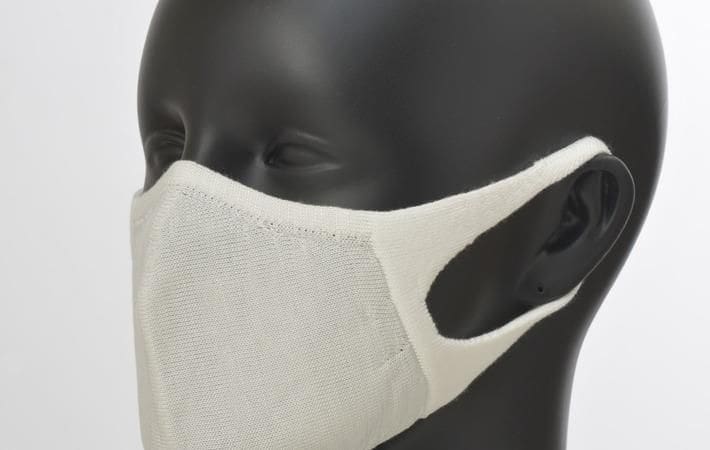With the continuing worldwide demand of surgical masks due to the spread of the Covid-19 coronavirus infection, Shima Seiki Manufacturing Limited, a Japan-based leading flat knitting solutions provider, has released new knitting data for 14 more versions of knitted masks to be produced on a variety of its computerised knitting machines.
These are in addition to the various mask data released by the company since March 19, bringing the total number of versions of the masks to 33. Data released this time consists of cotton masks to be produced on both WHoLEGARMEnT knitting machines as well as conventional shaping machines. WHoLEGARMEnT mask data is meant for production on SWG041n2, SWG061n2 and SWG091n2, as well as on the rest of Shima Seiki’s compact WHoLEGARMEnT knitting machines also known as “WHoLEGARMEnT Mini” machines that are suited to production of small accessory items, in 15 gauge and 18 gauge.
Shaped knit mask data is meant for production on SVR093SP, SVR123SP and SVR183SP computerised knitting machines equipped with a dedicated loop presser bed mounted above the rear needle bed that permits full use of inlay technique, in 14 gauge. Users of these machines can download the mask data from the Shima Seiki Users’ Site, an archive featuring over 10,000 knit samples for use by Shima Seiki customers. By releasing mask data for a range of different machines, the company aims to alleviate the shortage of masks as much as it can by allowing production of masks by as many of its customers as possible.
Each is a 3D form-fitted mask providing superior fit and comfort. WHoLEGARMEnT masks feature integral ear straps that are knitted along with the mask portion that reduce stress on the ears, and require no further sewing for quick response production. Shaped masks are knit with elastic bands pre-attached through inlay technique and only require tying afterward, for even more efficient production. Some mask data are intended for use in the upcoming summer months, with thinner and lighter fabrics and finer gauges. Some mask data are also available in kids’ sizes.
Knitted cotton masks can be washed and reused repeatedly. It should be noted however that unlike common non-woven surgical masks, knit masks do not have virus- and pollen-filtration functionality. Their main use is for prevention of spray from coughing and sneezing, and for reducing exposure to allergens.

